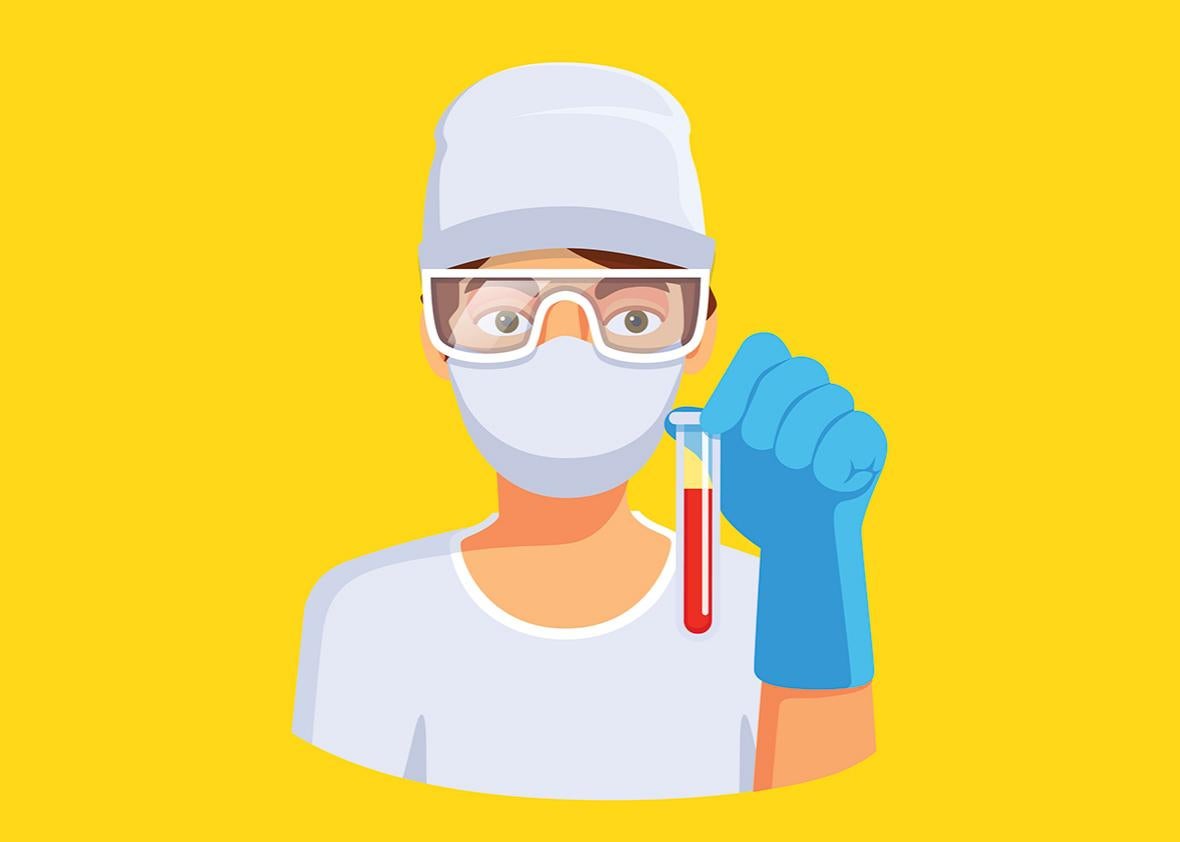Elizabeth Holmes, founder of blood-testing company Theranos, which eschews big needles in favor of easier testing, has been banned from running her lab—or any lab in America—for two years. Her company has been fined and sanctioned. Regulators deemed some of the company’s methods and technology unfit for patients.
The flurry of stories bearing the news featured photos of Holmes in the black turtleneck uniform that helped cement favorable comparisons between her and Steve Jobs. She’s often onstage, where she was so frequently placed to deliver sweet and sweeping messages on the future of health care. The narrative focuses on the college dropout’s stark economic turn (as assessed by Forbes, anyway) from the youngest self-made woman billionaire in the world to zilch, as her company faced scrutiny over its technology.
“The ban is a blessing. It gives the company a way to go forward without Holmes, whose lack of credibility in the financial and clinical communities is sinking the company,” Erik Gordon, a professor at the Ross School of Business at the University of Michigan told the Wall Street Journal.
We love a villain as much as we love a hero, and it seems we’ve found both in Holmes. But much like innovation itself, deception is a team effort.
There’s the former president of Theranos, Sunny Balwani, who left the company in May after the Centers for Medicare and Medicaid Services considered dealing him the sanction that it has now served just to Holmes. The threat follows a finding by CMS that Theranos’ lab in Newark, California, jeopardized patients’ safety.
There’s Channing Robertson, the Stanford chemical engineering professor who joined the Theranos board when Holmes dropped out of college. He kept the technology he was working on under extremely tight wraps—at one point, he told the New Yorker that he couldn’t even tell his wife what he was working on. It’s likely thanks to this veil of secrecy that Theranos’ tests were able to keep running for so long. As both a mentor to Holmes and then a technical adviser to the company, Robertson should have advised more oversight and caution rather than barreling forward with a health product that didn’t work. It’s impossible to know what he said behind closed doors, but in public, he seemed caught up in both the dreamy narrative and his place in it, in the New York Times comparing mentoring Holmes to teaching science to Einstein.
There are the members of Theranos’ board of directors. In the fall, Fortune pointed out that the group lacked the expertise to advise a medical company. Three former secretaries of state, a surgeon, and a former epidemiologist may sound impressive, but the board on the whole grossly lacked relevant technical and medical expertise. (A shake-up in May—months after the WSJ suggested the company was on shaky ground—did add three experts with more expertise.)
And there’s the media that propelled Holmes to fame, with coverage that was largely uncritical. The tech press is the “secret culprit,” in this mess, Vanity Fair declared in May, though the dishonor certainly extends to the likes of the New York Times’ T magazine.
Sure, sometimes there are singular bad apples that take down operations—a scientist cooking her data so artfully that it passes even scrupulous peer review in a top journal, a principal investigator who rules his lab with such a fearful hand that it takes years until someone dare blow the whistle. But Holmes was operating a company alongside a considerable number of other people, be they employees or investors, and many of them deserve at least partial credit for the downfall.
That is not to say that Holmes has not earned her sanction; she has. But there are players here that are not going to face formal consequences, and they should. I’m thinking particularly of those toward the top, who were well past the stage in their careers where they needed to rely on every résumé line to bolster their career prospects, for whom Theranos may have been a glitzy side project.
When we fetishize individual creators, we suck credit away from their collaborators. The tale of Holmes’ rise and fall makes for such a good yarn that Jennifer Lawrence is slated to play her in a movie, pushing the Stanford dropout’s star even higher, if in infamy. Let’s hope that in the Hollywood version of the Theranos story, we are treated to more than one villain.
